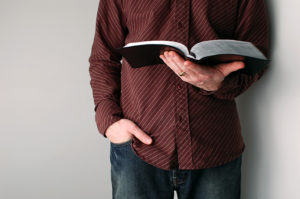 As fewer Americans interact with pastors on a regular basis, fewer say they trust clergy overall.
As fewer Americans interact with pastors on a regular basis, fewer say they trust clergy overall.
Trust in pastors fell for the third straight year and reached an all-time low. Around 1 in 3 Americans (34 percent) rate the honesty and ethical standards of clergy as high or very high, according to the latest Gallup survey.
Downward trends in church attendance accelerated during the COVID-19 pandemic. With more Americans staying home each Sunday, fewer personally know a local church pastor. The lack of individual knowledge means more people associate pastors as a whole with the scandals surrounding individual church leaders.
The 34 percent who believe pastors have high ethical standards marks a two-point drop from the previous historic low last year of 36 percent.
Declining trust in pastors
Previously, Americans said pastors had a high or very high ethical standard and level of honesty, reaching 67 percent in 1985. After a decade of decline, Americans’ views of pastors rebounded through the 1990s and reached 64 percent in 2001 in the aftermath of the 9/11 attacks. Since then, however, the downward trajectory has only slowed briefly amid sexual abuse scandals that were first exposed in the Roman Catholic Church and have since been revealed among other denominations and groups.
Trust in pastors has fallen 30 points since 2001. A majority of Americans last had a high view of pastors’ honesty in 2012. In 2018, for the first time, fewer than 40 percent highly rated pastors’ ethical standards and honesty. After a brief rebound in 2019, fewer than 2 in 5 Americans have given pastors the highest rating in the past three years.
Currently, slightly less than half of Americans (45 percent) say pastors have average levels of honesty, down three points from last year. Around 1 in 6 (17 percent) believe pastors have low or very ethical standards, a three-point jump over last year.
Signals of trust
Adults under 35 are just as likely to say pastors have low or very low honesty (21 percent) as they are to say pastors have high or very high levels (20 percent). The older an American is the more likely they are to be more trusting of pastors. While 20 percent of young adults believe pastors have high levels of honesty, 30 percent of 35- to 54-year-olds and 46 percent of those 55 and older agree.
The more formal education a person has the more likely they are to trust pastors. Around 1 in 5 of those who are high school graduates or less (21 percent) believe pastors have high or very high ethical standards. Among those with some college, 38 percent trust pastors, while 43 percent of college graduates say the same.
Politically speaking, conservatives (38 percent) and moderates (40 percent) are more likely than liberals (24 percent) to believe pastors have high or very high honesty. Republicans (41 percent) are more likely than Democrats (34 percent) and independents (31 percent) to say they trust clergy.
Overall, pastors rank eighth among the 18 professions Gallup asked about in their survey. Clergy trail nurses (79 percent), medical doctors (62 percent), pharmacists (58 percent), high school teachers (53 percent), police officers (50 percent), accountants (41 percent), and judges (39 percent).
Professions Americans are less likely to trust than pastors include bankers (26 percent), real estate agents (24 percent), journalists (23 percent), lawyers (21 percent), car salespeople (11 percent), members of Congress (9 percent), and telemarketers (6 percent). B&R
